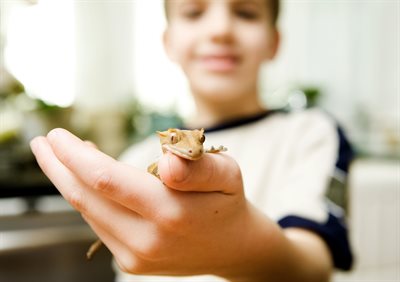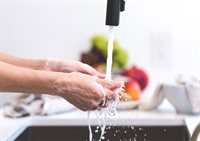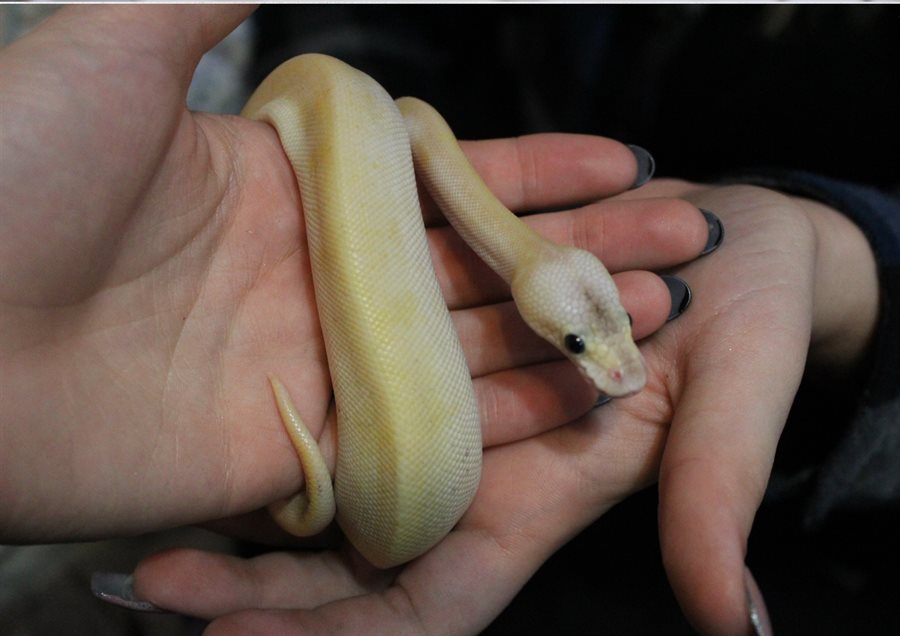Reducing the risk of illness: Handling of reptiles
Reptiles such as snakes, lizards, geckos, iguanas, tortoises, and turtles can carry germs in their intestines that can cause illness in people
October 13th, 2025
These germs are shed in their droppings, which can quickly contaminate their skin, habitats, water baths and anything they come into direct contact with - even if the reptile looks healthy.
Illnesses commonly associated with the handling of reptiles include:
- Salmonella - causes diarrhoea, vomiting, stomach cramps, and fever.
- Campylobacter - causes diarrhoea (sometimes bloody), cramps, and fever.
- E. coli - causes diarrhoea (sometimes bloody), urinary tract infections, and in severe cases kidney damage.
- Botulism – is a serious, life threatening condition that results in paralysis and death. Caused by a toxin released by Clostridium bacteria, particularly in aquatic reptiles.
These infections can have serious consequences for children under 5 years of age, pregnant women, adults over the age of 65, and people with weakened immune systems so anyone with these groups in their household must give careful thought to the suitability of having reptiles as pets.
Exposure to reptiles is also an increasingly popular activity at children’s birthday parties, in early year’s settings, playgroups and primary schools. Anyone responsible for arranging such sessions must ensure that the activity has been fully risk assessed so that the potential for illness can be effectively mitigated.
Always
| Thoroughly wash hands immediately after handling reptiles, touching their enclosures (vivaria) or surfaces they have been in direct contact with, handling raw reptile food (fresh and frozen), and feeding reptiles. |
 |
|
Clean reptile enclosures (vivaria) outside of the house wherever possible to mitigate the risk of cross-contamination inside the home.
If you have to use the bath or bathroom sink, ensure surfaces are disinfected with a BS EN 1276 compliant product immediately after use. |
Use dedicated cleaning equipment for reptile tanks and enclosures that are subsequently washed and stored separately from any equipment used in the kitchen or for personal hygiene. |
| Keep reptile habitats (vivaria) clean and disinfect them regularly using pet-safe disinfectants. |
Handle reptiles gently to avoid bites and scratches.
|
| Supervise children closely when they are near reptiles - ensure they do not touch their mouth or face when handling reptiles or anything that a reptile has been in direct contact with. |
Store reptile food and supplies separately from human food, ensuring it is securely ‘double bagged’ in a polythene bag within an air-tight plastic container. Where possible, always use a separate fridge and freezer for reptile food. |
| Thoroughly disinfect all surfaces and equipment which comes into contact with frozen and fresh reptile food. A disinfectant compliant with BS EN 1276 will be suitable. |
Minimise the handling of feeder rodents by using long tweezers or forceps, and wearing disposable gloves.
|

Never
| Eat, drink, vape or smoke while handling and feeding reptiles. | Kiss reptiles or hold them close to your face. |
|---|
| Wash reptile equipment in sinks used for food preparation or cleaning food equipment. |
Dispose of waste water and droppings from your reptile down the bathroom sink or bath – put it down the toilet instead. |
| Rely on hand sanitiser gels to clean your hands after handling reptiles, touching their enclosures or anything they have been in direct contact with. |
Allow reptiles to roam freely in the home, especially in areas where food is stored, prepared and eaten. |